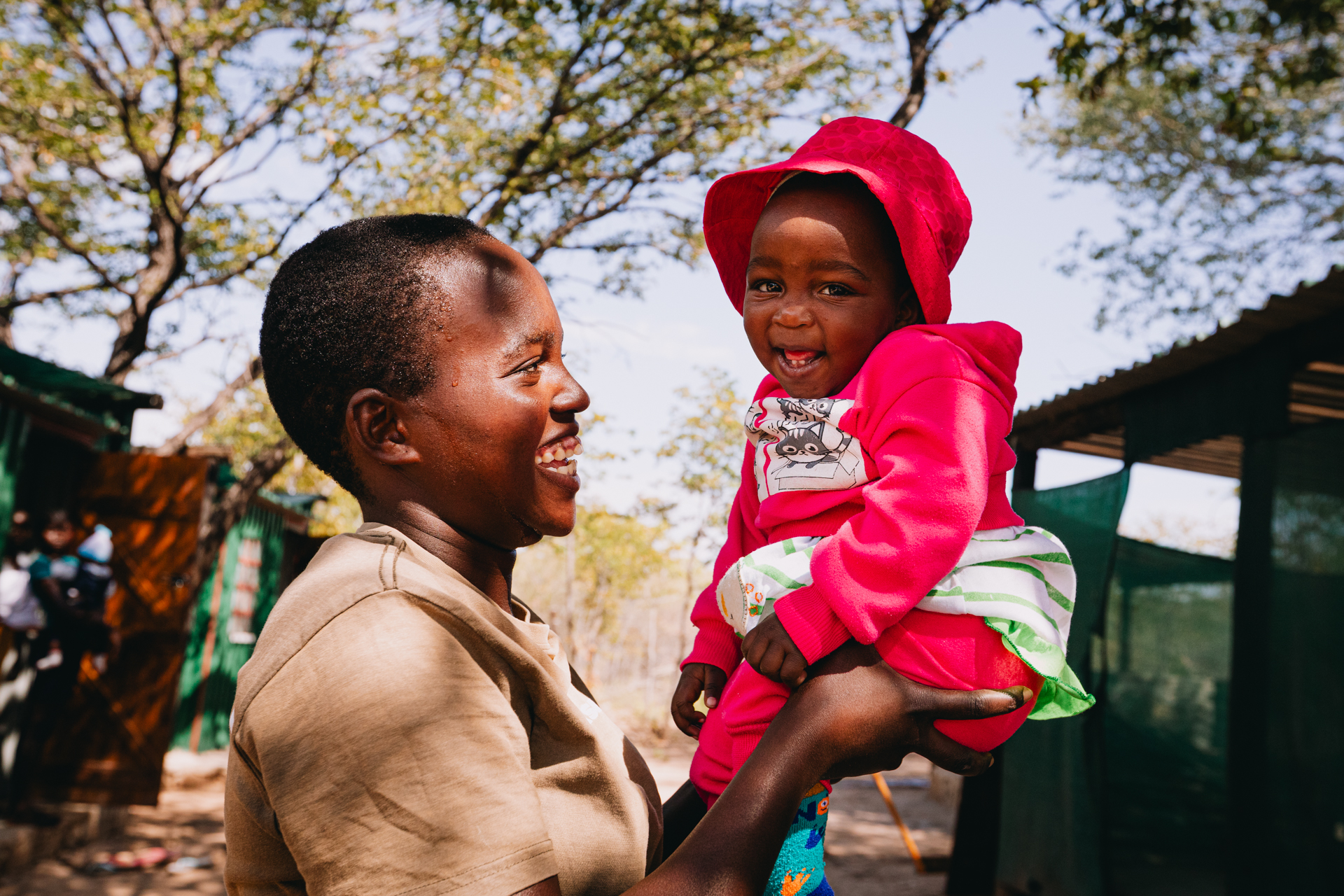
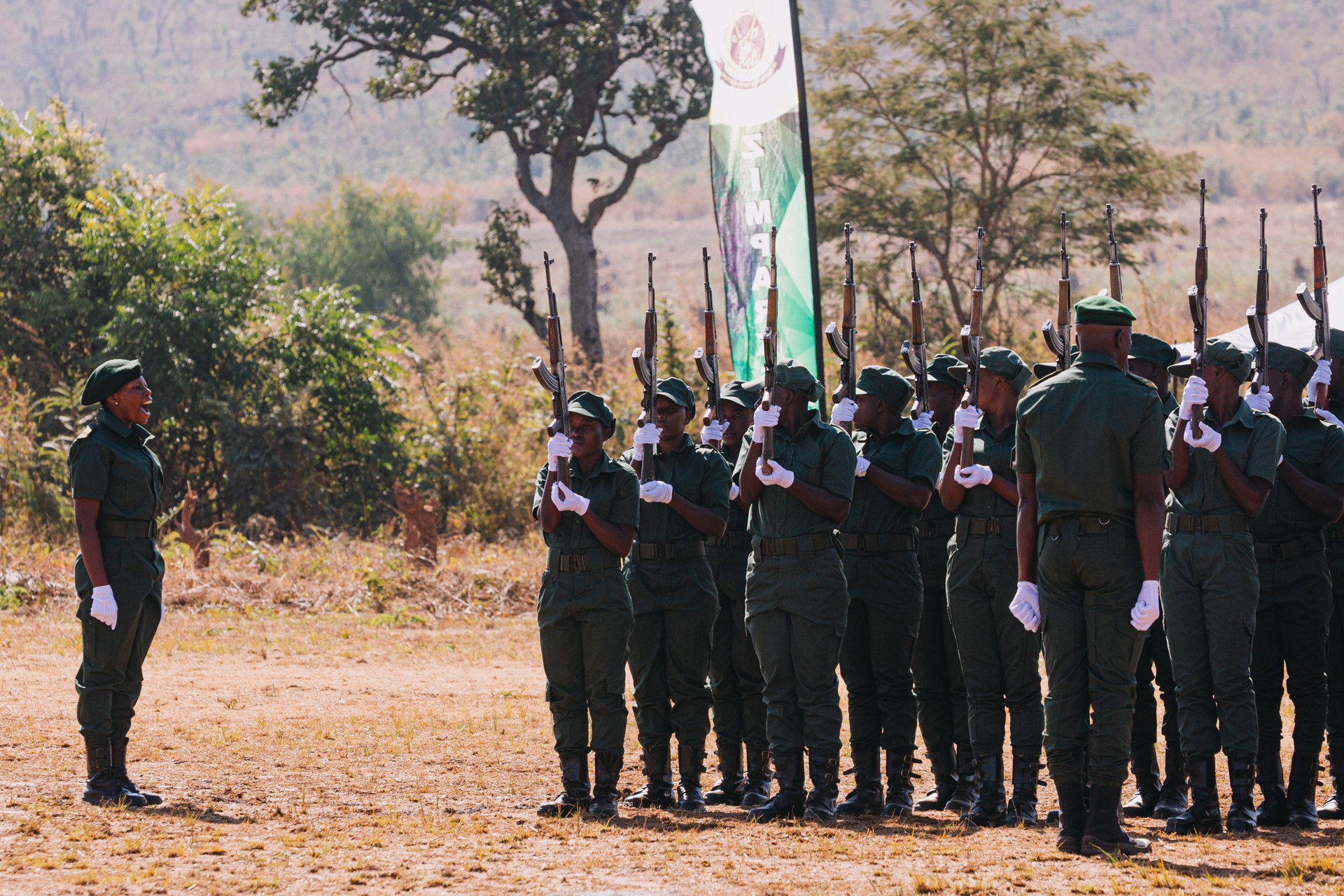

Welcome to this Special Edition of Akashinga's quarterly Ranger Report.
Over time, rangers’ daily activities, experiences, stories, and achievements shape both personal transformation and the ecosystems they protect. This quarter, instead of focusing on rangers' day-to-day work, we invite you to step inside the lives of three Akashinga Rangers. Their experiences of leadership, training and policy change on the frontlines are drafting a future-forward conservation narrative that is inclusive, effective and sustainable.
If you'd like to support our year end fundraising efforts, please visit our donation page, linked here.
Margaret Darawanda: Leading from the Front
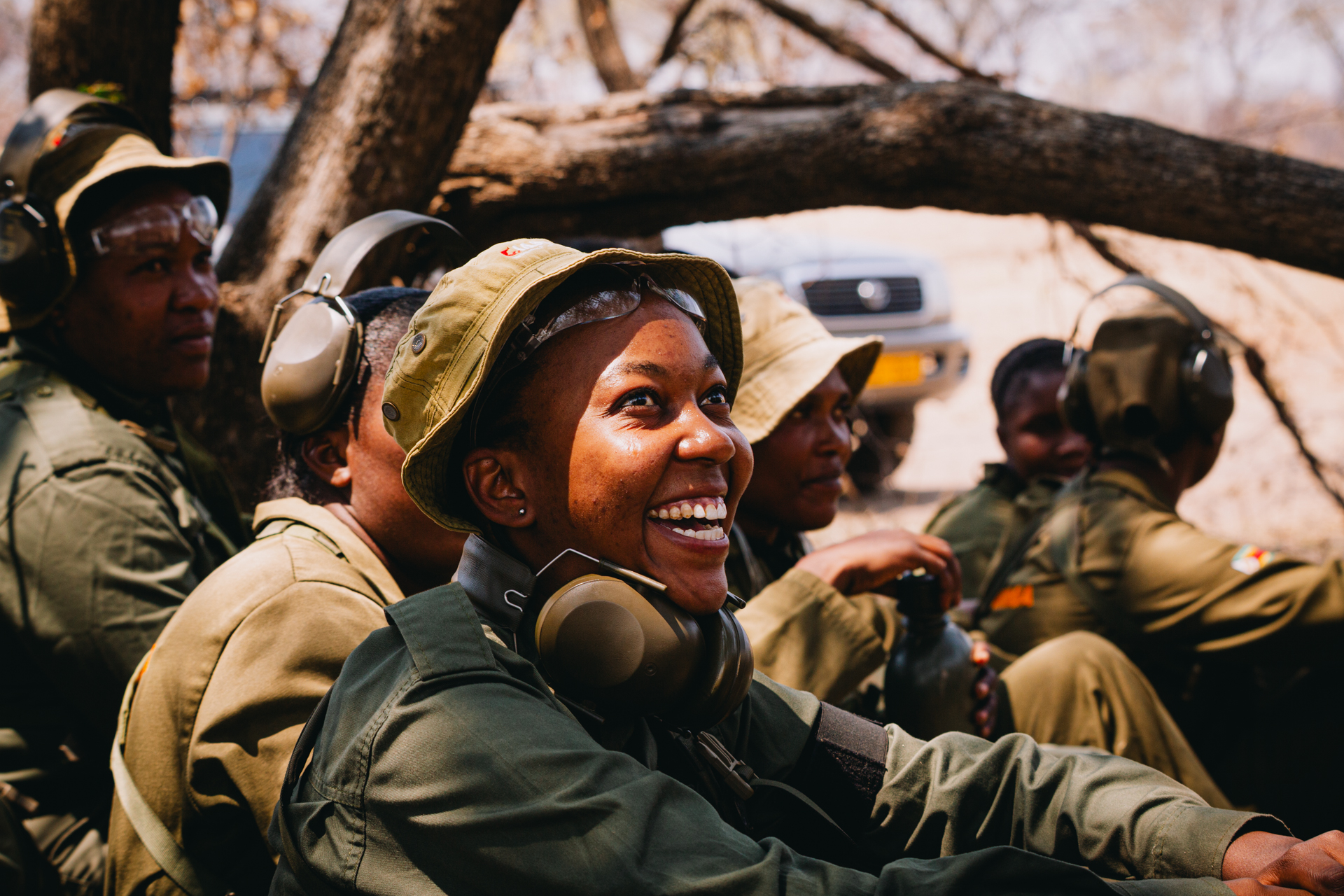
Margaret Darawanda never imagined she’d become a ranger — let alone rise to one of the highest leadership roles at Akashinga. Today, as Head of Operations at Akashinga East (Phundundu) in Zimbabwe, Margaret leads daily patrols, makes strategic field decisions, and mentors a new generation of Akashinga women. But her journey began far from the frontlines of wildlife protection.
Growing up in rural Hurungwe District, Margaret’s childhood dream was to become a teacher. But after losing her father in 2013, her family struggled to make ends meet. She completed high school but couldn’t afford to continue her education. “When the Akashinga programme came recruiting women in our area in 2017, I was unemployed and desperate. I grabbed the chance — not knowing it would change my life completely.”
What started as a search for employment turned into a deep passion for conservation. Margaret admits that although she didn't grow up loving animals, this changed once she started learning about wildlife and the natural world around her.
Over the next several years, Margaret moved steadily through the ranks — from field ranger to team leader, then Control Room Duty Officer, then Deputy Head of Operations, and finally into her current role as Head of Operations. She now leads the very teams she once patrolled with.
.jpg)
“The transition has been both challenging and rewarding,” Margaret says. “I had to grow from simply following instructions to guiding and supporting others, making strategic decisions, and ensuring the success of the teams I lead.”
Her leadership journey was built on a solid foundation of hands-on experience, rigorous training, and mentorship. But perhaps most importantly, it was forged in moments of intense personal trial. She recalls a particularly brutal training exercise: a 60-kilometre bush march under the blazing sun, with no food and only two litres of water to last the entire day.
“I felt like giving up. My legs were heavy, my stomach empty, and fear crept in — fear of being left behind, of being attacked by wild animals in the bush. But when I looked around and saw my sisters struggling yet pushing through, I told myself, ‘If she can do it, so can I.’ That moment taught me that resilience is a choice.”

Now, as a leader, Margaret uses those hard-earned lessons to inspire others. She leads with empathy and fairness, and she understands the challenges her team faces because she’s walked the same path. “I believe my leadership gives others someone they can trust. When they see my journey, they know that women can rise in conservation.”
Tendai Kadohwata: Redefining Success through Service
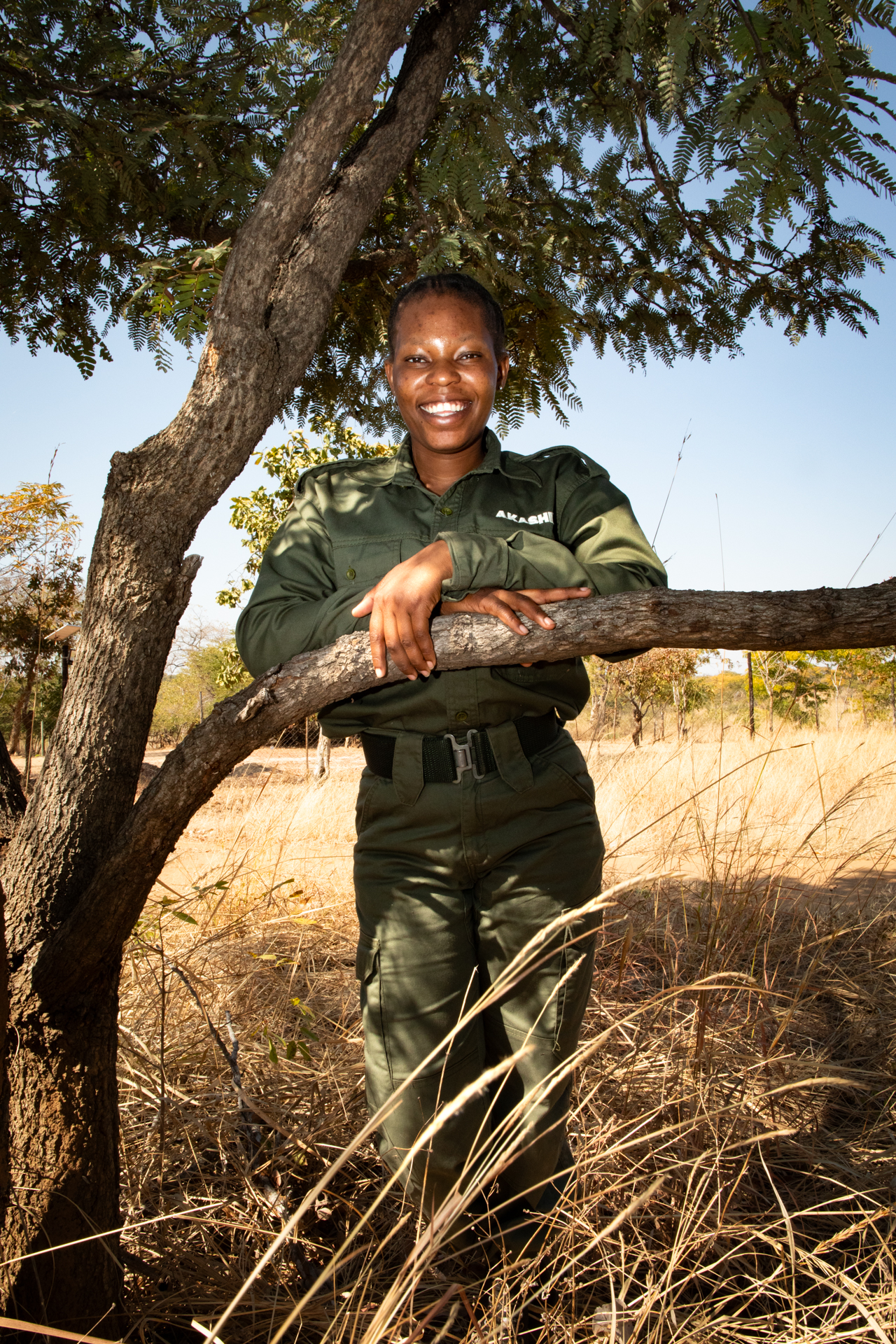
Tendai Kadohwata’s story is one of powerful transformation — from a life marked by poverty and uncertainty to becoming a respected Junior Instructor with Akashinga at our Phundundu Reserve in Zimbabwe. Her rise through the ranks reflects not only her personal growth but also the strength of Akashinga’s mission: empowering women and protecting nature through discipline, leadership, and community.
Starting out as a ranger in 2018, Tendai quickly gained valuable field experience, patrolling vast areas of wilderness, tracking wildlife, and learning firsthand the dangers posed by poaching. But as she developed her skills, her sights shifted higher, and when an opportunity arose to become a field ranger instructor, she grabbed it.
“When I found out I had been selected, I was overjoyed. It wasn’t easy — it was my first time trying to be an instructor.”

Stepping into her new role, Tendai received training in leadership, instruction, managing learner behavior, and conservation-specific skills like arrest procedures and survival techniques. “These skills are not just theory,” she explains. “They’re directly linked to the reality of being a ranger. If you don’t know how to survive in the bush, how to track or arrest properly, your life — and the lives of others — can be at risk.”
As a Junior Instructor, Tendai is now responsible for shaping the next generation of Akashinga Rangers. She takes the role seriously, drawing on her own journey to guide others.
“I think my strongest skill is patience. As an instructor, you have to be patient. Some learners are slower than others, and if you’re not patient, they can’t succeed. I want to see them grow, progress, even surpass me. That’s what makes me a confident trainer.”

Tendai’s commitment to excellence is grounded in personal integrity. “You can’t be a trainer while you’re cheating. You have to lead by example, because people are watching. You carry a title that commands respect, so you must hold yourself to the standard.”
She now measures her success not just by her own achievements, but by the impact she has on others. “I used to be led, now I lead. That’s how I know I’ve grown. I inspire others not by words, but by the things I do.” She hopes the training she provides will have an impact on Zimbabwe's wildlife for generations to come.
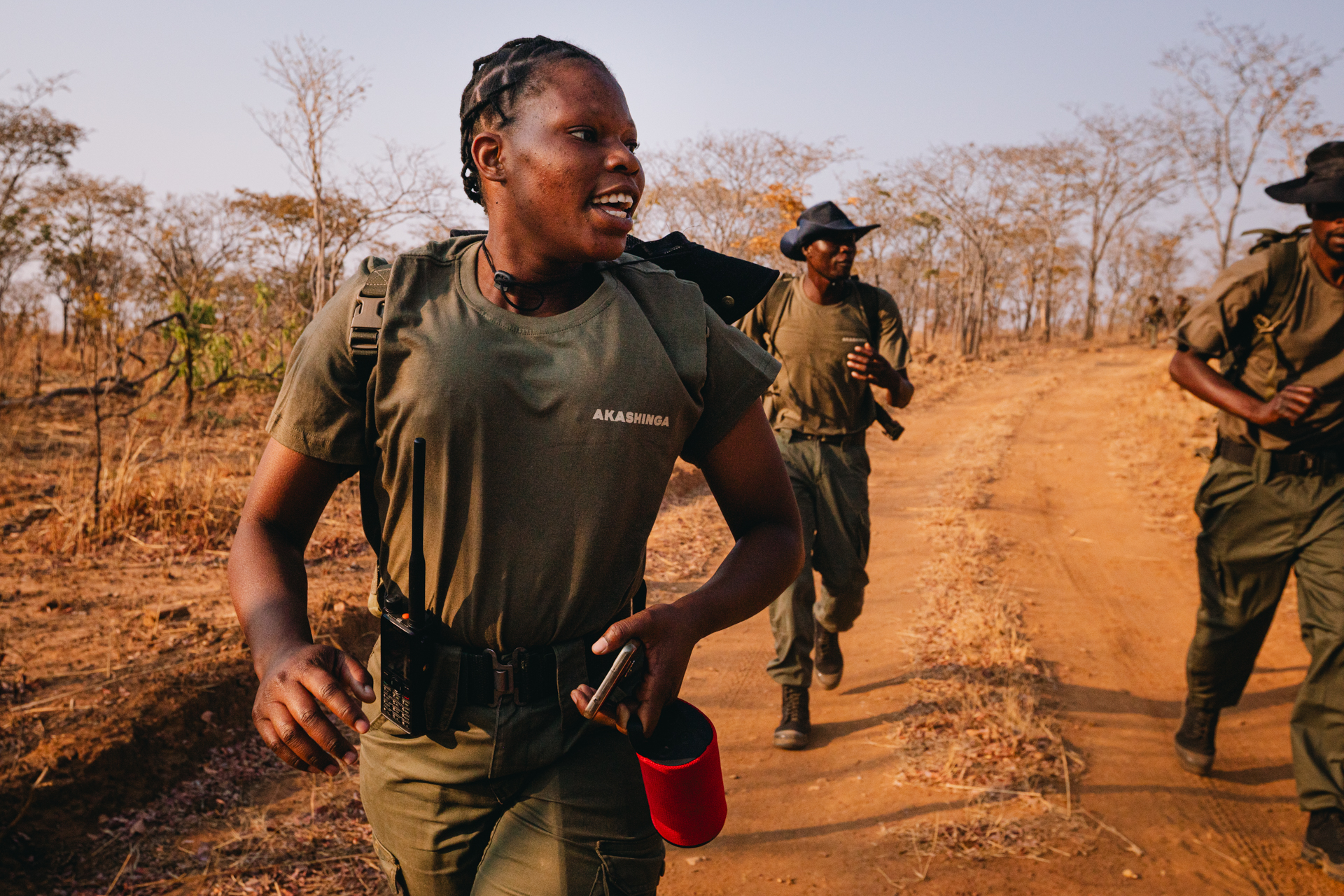
Loice Matutu: How Inclusive Employment Benefits Generations

Once an orphan with little direction, Loice Matutu is now a proud Akashinga Ranger, a mother, and a symbol of the positive effects of progressive employment policies.
Born into poverty in rural Zimbabwe and raised by her grandmother in Sinamsanga Village, after the loss of her biological mother, Loice’s early years were marked by hardship. When her grandmother could no longer care for her, Loice was taken in by her aunt Grace Zhuwakina, a housekeeper at Songo Reserve. “She adopted me without hesitation,” Loice recalls. “She gave me a home, and later, discipline and guidance that I now value every day on the job.”
Before Akashinga arrived in her community, Loice expected to follow Grace’s path into domestic work. But when the all-female anti-poaching unit took over the Songo lease, everything changed. “In the world I grew up in, rangers were all men,” Grace says. “I never imagined my daughter would become one of them.”
Now 25, Loice has worn the Akashinga uniform for three years and has completely reshaped her future. “I joined Akashinga to protect our wild animals,” she says. “Our new generation shouldn’t grow up seeing animals only in books or videos. They should see them in real life.”
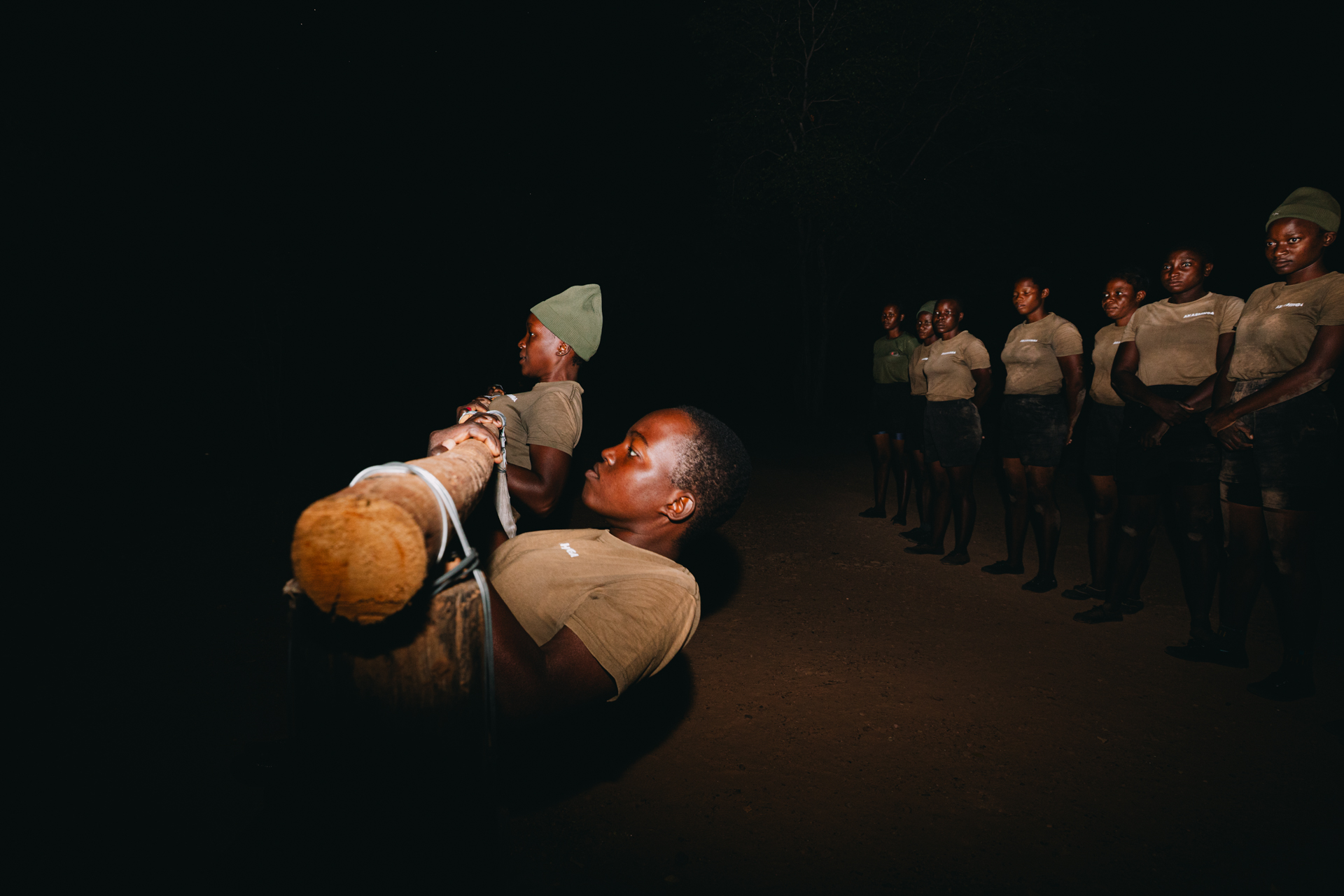
Loice's transformation didn’t stop with her job. Thanks to the persistence of Akashinga Rangers and staff, after months of negotiation, the company implemented a comprehensive Ranger Benefits Policy and Code of Conduct. Effective from September 2024, the policy strengthens ethical standards, improves employee welfare, and formalizes maternity support, allowing for six months of leave followed by an additional three months of light duties at camp accompanied by the new baby.
Shortly afterwards, Loice became a mother to a baby girl, Michelle, and benefitted from Akashinga’s family-forward policy. Michelle is currently cared for by a relative at the nearby maternity camp. Loice is able to visit her daughter for an extended lunch and finishes work at 4 p.m. each day to ensure Michelle is breastfed and loved.
Grace, now watching Loice raise a child of her own and lead a new life with confidence is delighted that Loice has received support which has enabled her to transform her behaviour and lifestyle. Loice values the independence her work has given her, “Akashinga has helped me to support my family, buy what we need, and live without the stress I once knew,” she says. “Before, I was lost. Now, I know who I am. I am strong, I am working, and I am able to care for my child and my parents.”
